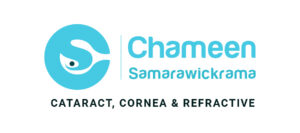If you’re considering corneal graft surgery in Sydney, going to the right location is important. Prof. Chameen Samarawickrama is an award-winning specialist for corneal transplant in Sydney, working with Nexus Eyecare clinics located at Norwest and Blacktown, NSW. With years of experience in intricate corneal and anterior segment surgeries, Prof. Samarawickrama helps patients navigate this process with expert attention, compassion, and transparency.
In this blog, we elaborate on some of the answers by Prof. Samarawickrama to the most common questions regarding corneal graft surgery in Sydney, providing comprehensive solutions based on specialist knowledge and the very best in surgical expertise.
1. What is a corneal graft (corneal transplant)?
A corneal transplant, also referred to as corneal graft or keratoplasty, is a process in which a diseased or injured cornea is exchanged with healthy donated tissue. The surgery realigns light transmission through the cornea, enabling patients to enjoy restoration of clarity of vision.
2. When should a corneal transplant be done?
Corneal transplants are prescribed when other treatments (such as cross-linking, contact lenses, or medications) are not adequate. Conditions routinely treated by a corneal transplant specialist in Sydney are:
- Keratoconus (advanced)
- Scarring of the cornea caused by injury, infection, or previous surgery
- Fuchs’ endothelial dystrophy and corneal edema or clouding
3. What are the different corneal graft surgeries available in Sydney?
Expert centers and surgeons in Sydney carry out different graft techniques:
- Penetrating Keratoplasty (PK) – transplant of the full thickness
- Deep Anterior Lamellar Keratoplasty (DALK) – substitutes anterior layers, preserving endothelium. Often applied in the case of keratoconus or stromal scarring.
- Endothelial Keratoplasty (DSAEK / DSEK / DMEK) – substitutes innermost layer(s) of the cornea (Descemet’s membrane and endothelium):
1) DSAEK / DSEK – transplant consists of a thin stromal tissue layer.
2) DMEK – transplant of only the membrane and endothelial cells; enables fast recovery and great visual results.
4. What happens on the day of surgery?
Corneal grafts are usually performed as day surgery. With local anaesthesia (possibly with sedation) or general anesthetic, the damaged corneal tissue is removed and replaced with the donor graft. For certain procedures, such as DMEK or DSAEK, a very small air bubble can be used to keep the graft positioned during initial healing, but no sutures are required.
5. What about complications and risks?
Corneal transplants are typically very successful, particularly for keratoconus, where success rates can be over 95%. Nevertheless, as with any surgery, there are risks:
- Graft rejection: approximately 20% and can occur even years later
- Infection, swelling, suture complication, or cataract development
- With lamellar methods (DMEK/DSAEK), partial disengagement creates a necessity for reattachment
Early diagnosis and early treatment (particularly of rejection attacks) are the secrets of top professionals offering corneal transplants in Sydney to maintain graft viability.
6. How long does it take to recover? When will the vision improve?
- PK & DALK: Vision may take 12–24 months to get fully restored. Improvement begins early, though sutures remain for years.
- DMEK / DSAEK: Quicker recovery, most patients gain functional sight within weeks to a few months.
However, please note that in every procedure, lifelong steroid eye drops and follow-ups are required because the rejection risk never goes away completely.
7. How do I prepare, and what can I expect after surgery?
Pre-surgery:
- Anticipate discussions regarding surgery type, anaesthesia, and donor tissue procurement.
- You might require preoperative tests, short-term changes in medicine, and someone to take you home.
Post surgery:
- Eye protection (night shield), strict hygiene, and medicated eye drops (antibiotic + steroid) are required.
- Eye trauma, contact sports, swimming, or eye rubbing must be avoided during healing.
- Follow-up visits: This will depend on the severity of your case and the need for monitoring, as decided by your corneal transplant specialist in Sydney.
If you’re considering corneal graft surgery in Sydney, the path forward begins with a thoughtful conversation. Schedule a consultation with Prof. Chameen Samarawickrama at Nexus Eyecare and explore which advanced, individually tailored treatment can best restore your vision and quality of life.
